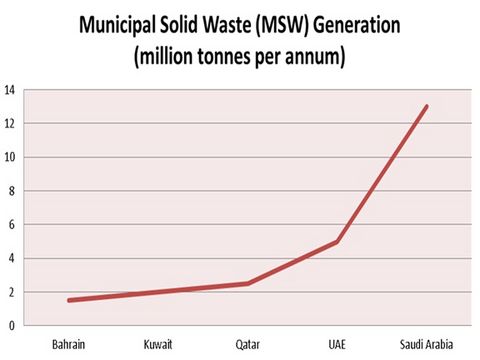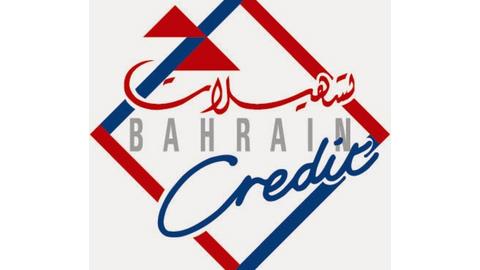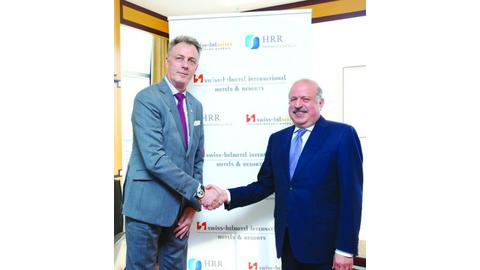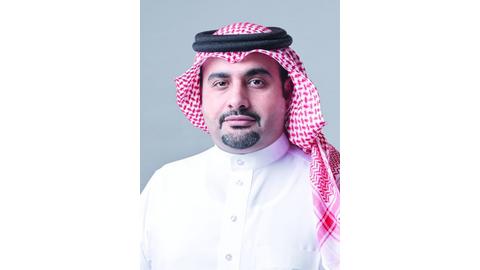New treatment plant will use sewage sludge to generate energy

BAHRAIN’s sewage sludge will soon be converted into power following completion of a new treatment plant, it has emerged.
It is one of three major projects planned in Bahrain designed to generate energy from waste, along with a new landfill site and a composting plant.
Authorities want to tap into a waste-to-energy industry that is expected to be worth $30 billion globally by 2022.
“The GCC states rank among the highest per-capita producers of municipal solid waste in the world, with the majority of waste dumped in landfills using valuable land and resulting in quantified environmental damage,” explained Loay Ghazaleh, adviser to the Works, Municipality Affairs and Urban Planning Ministry Under-Secretary.
He revealed a new “sludge-to-energy” plant would be located in Tubli and the private company responsible would sell electricity to the government, adding power to the national grid.
“The sludge-to-energy plant in Tubli is expected to be commissioned within three months and we are in the process of finalising a private partner from the shortlist,” said Mr Ghazaleh.
“We don’t have an estimated cost yet as the technology is new and the private sector will be funding it.
“A few companies have expressed willingness.
“The plant will take sludge and convert it into energy.
“We (the government) will buy the energy from them at a cost that is cheaper than the government cost (dictated by the Electricity and Water Authority).”
Solid waste in the GCC as a whole is expected to increase by 27 per cent this year.
Gulf counties are expected to record 29 million tonnes of solid waste in 2017, compared with 23m last year.
Of that Bahrain accounts for the modest figure of around 1.6m tonnes, but Mr Ghazaleh said it was taking steps to radically overhaul its waste treatment facilities.
This also includes a new landfill in Jaw, which is also intended to convert waste into power, and a composting plant in Asker.
The possibility of establishing a recycling plant is also being studied, although the lack of a market for recycled products could scupper the proposal.
“Currently Bahrain is studying a full strategy of solid waste management, such as construction waste recycling, green compost and a sludge-to-energy plant,” said Mr Ghazaleh.
The GDN reported in February that the new landfill was needed because the existing facility in Hafeera is due to reach its capacity in four years.
“The new project will be an engineered landfill in which layers of solid waste are filled, compacted and covered for final disposal,” added Mr Ghazaleh.
“It is lined at the bottom to prevent groundwater pollution and helps in reducing methane-producing elements.”
Meanwhile, he said a BD45m composting plant was in the tender phase with work due to start in a matter of months.
“We are looking for a private sector partner who can take up the project,” explained Mr Ghazaleh.
“The government will allocate the land and the private sector will have to make the building and produce the compost.
“An agreement will be made to take compost from the plant.
“All agricultural waste produces methane gases, which are environment hazards.
“So when we convert it into compost we eliminate the environmental hazards, which left unattended can go into the water table and contaminate it.”
The involvement of the private sector in waste treatment initiatives reflects the government’s strategy to share the financial burden for public projects.
It has been made necessary by a significant fall in national revenues that accompanied the 2014 oil price plunge.
Other countries in the region are pursuing similar waste-to-energy initiatives after experiencing similar financial challenges.
Revenues
“The UAE’s goal for 2021 is to divert 75pc of solid waste from landfills to WtE (waste-to-energy) and produce 7pc of its energy from WtE,” said Mr Ghazaleh.
However, he added that the benefits were not only financial.
“Using waste as a combustion material can reduce landfill volumes by 80 to 90pc,” he said.
“WtE means less spending on developing and maintaining landfills and also saving subsidies that the government allocates on fuel sources with energy recovery.
“It helps tackle the issue of potable water capacity (when combined with desalination).
“It prevents one tonne of CO2 release for every tonne of waste burned.
“WtE eliminates methane that would have leaked with landfill disposal, which is emitted from the decomposition of organic wastes.”
Source: http://www.gdnonline.com/Details/203539/Major-plans-on-way-to-tackle-waste


